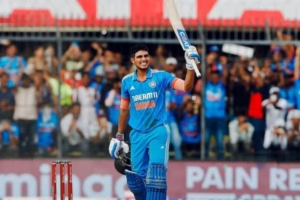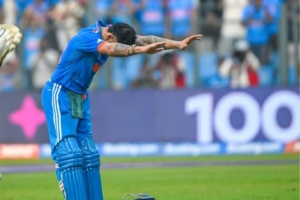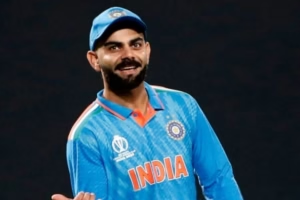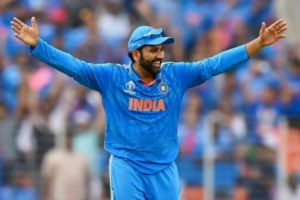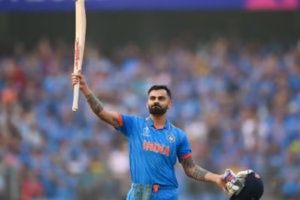Who is the Godfather of Cricket?
By Aayush Pathak 05 Nov 2024, 12:49 IST
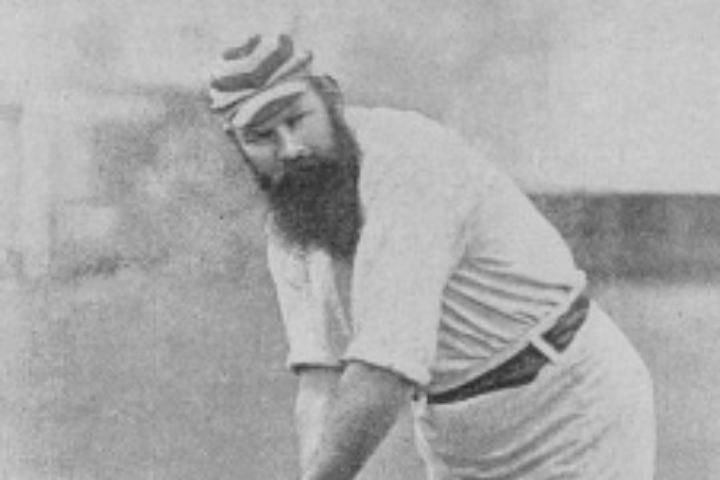

Dr. William Gilbert Grace, popularly known as WG Grace is called the Godfather of Cricket. Grace was born on July 18, 1848 at Downend, Gloucestershire. His work in the sport has entitled him to be called the Godfather of Cricket.
Grace comes from a highly cricket-enthusiastic family. His father and uncle were both very fine cricketers. They helped him become the “Godfather of Cricket”.
Early Life and Family Background of the Godfather of Cricket WG Grace

WG Grace grew up in a home where cricket was life. His family cultivated a practice pitch in their orchard. It was through this that Grace and his siblings could develop their skills early on. He first picked up a bat at just two years old. Hence, this showed an early attraction for the game. With this began the journey of the Godfather of Cricket.
Edward and Fred, Grace’s brothers, also made their mark as distinguished cricketers. They were one of the first brother trios to play Test Cricket for England.
Grace was brought up with a love for cricket. He learned to bat and bowl under the tutelage of his uncle Alfred Pocock. Pocock was one of the finest coaches around. This early training helped Grace go on to develop into a future success story and innovator in the game.
WG Grace Cricket Career

Grace made his first-class debut in 1865 at the age of 16. He went on to play an incredible 870 first-class matches over the next 44 seasons, and one of the greatest cricket players was created. His career spanned 1865 to 1908, and he captained England and Gloucestershire, among other teams. He influenced the game in very profound ways. He further revolutionized batting and came up with techniques that are even used today.
As an all-rounder, Grace was a complete batsman and bowler. He scored more than 54,000 runs and took more than 2,800 wickets in first-class cricket. He was one of the toughest opponents since he could dominate the match both with bat and ball. His batting style was characterized by power and precision, and it earned him accolades from his contemporaries who referred to him as “the inventor of modern batsmanship.”
The Godfather of Cricket: A Lasting Legacy of WG Grace

WG Grace deserves to be named the “Godfather of Cricket” as his contributions have been so great to the sport. This man not only established records but also inspired generations with his selfless love and passion for the game. The statistics against his name are astounding. He featured in 870 games and recorded 124 centuries. He even excelled on pitches considered unplayable today.
Godfather of Cricket WG Grace also represented England in 22 Test Matches. In these, he scored 1098 runs with 5 fifties and 2 centuries. He also took 9 wickets in his international career.
Grace also made an important impact on the business side of cricket. That was at a time when professional sports were just finding their way. He argued for players to earn money off their talent. This played against the amateurism status dominating the sport back then. This paved the way for modern professional cricket.
Grace revolutionized batting by using a more aggressive and strategic approach. He was instrumental in the formulation of modern batting techniques that included a full backlift and a variety of new shots, which added value to the scoring. He set standards and inspired later generations of batters.
During Grace’s period, cricket was changing from underarm and roundarm bowling to overarm bowling. Grace was a key figure who popularized overarm bowling in cricket, which was legalized in 1864. Through his acceptance and use, the style became widely accepted in modern cricket.
Innovations in Cricket by WG Grace

WG Grace was a player but also an innovator who influenced most aspects of cricket development. He was instrumental in setting up several rules that are part of the game today. For instance, while playing for the Marylebone Cricket Club (MCC), he proposed changes such as standardizing equipment and improving playing conditions.
One of his notable contributions was the wickets with three stumps. This is a standard feature in modern cricket that he advocated. His foresight in the game allowed him the opportunity to introduce change that structured and enhanced the game.
Grace realized uniformity in the cricket kit was essential in ensuring a level playing field. He pushed for standardized equipment. He was pivotal in the establishment of continuous regulations regarding bats, balls, and other gear. Standardization, therefore, became imperative in the maintenance of the purity of the game as it gained popularity.
The Dual Nature of WG Grace

Despite his legendary status, WG Grace was not without controversy. His competitive nature sometimes led him to employ questionable tactics on the field. Critics often described him as mercenary due to his financial dealings within cricket, despite being classified as an amateur player. This duality—being both revered and criticized—adds depth to his legacy as the “Godfather of Cricket.”
Grace’s commercial acumen earned him more through cricket than most professionals at the time. He negotiated very successful contracts for tours and matches. It was, of course, a thorn in the side of those who viewed the game as something the professionals should do for fun.
Even decades after his death on October 23, 1915, WG Grace’s influence remains palpable in cricket today. Many have tried to analyze and understand how he bats by studying his approach. Many of the techniques he invented become basic skills taught in various coaching programs worldwide.
Are There Any Other Contenders for the Godfather of Cricket?
While WG Grace is often hailed as the “Godfather of Cricket,” there are several others who have contributed significantly to cricket. Each has left their mark, shaping cricket in unique ways. Let’s explore some of these contenders who could also be considered as the Godfather of Cricket.
Kerry Packer: The Revolutionary

Kerry Packer is an Australian media tycoon. He is a strong contender for the title of “Godfather of Modern Cricket.”In the late 1970s, Packer transformed cricket through his visionary approach. He founded World Series Cricket that completely revamped the game, increasing players’ salaries and introducing new formats in it.
Packer’s influence went beyond monetary benefits. He brought in day-night matches, coloured jerseys, and limited-overs cricket. All the modern-day ODI World Cups we see were part of Kerry Packer’s vision. All these innovations attracted a young audience and made the game popular all over the world. His efforts saved cricket from financial turmoil and also made it accessible to fans around the world.
As Shane Warne once remarked, “Everyone in the world of cricket owes (Packer) so much.”
Don Bradman: The Iconic Batsman

Another strong contender for the title is Sir Donald George Bradman. He is widely considered the greatest batter cricket has ever seen. His Test batting average of 99.94 is simply staggering. During his 20-year career, Bradman scored 6,996 runs in just 52 Test matches, making him one of Australia’s most celebrated sports figures.
Bradman was much more than statistics. He became a national hero in Australia when the country was at its worst. Countless players and fans have been inspired by his performances. He was a symbol of excellence, and many try to attain that today.
Given his extraordinary contributions and iconic status, Don Bradman is undeniably a contender for the title of “Godfather of Cricket.”
MS Dhoni: India’s Godfather of Cricket

In contemporary cricket, MS Dhoni stands out as another strong contender for the title of “Godfather of Cricket” in India. Under his leadership, India achieved remarkable success on the international stage. Dhoni led India to victory in the inaugural ICC T20 World Cup in 2007 and then secured the ICC ODI World Cup in 2011 after a 28-year drought.
His composed self and strategic sense have drawn respect from the players as well as fans. An important factor he brought to developing Team India was the ability to nurture youngsters. Even after he gave up the captaincy mantle, he continued to mentor many who followed, such as Virat Kohli, to enable smooth transitions into leadership.
Dhoni’s contribution to Indian cricket is monumental and thus very eligible for being known as the “Godfather of Cricket” in the modern era.
It is not easy to place the title of “Godfather of Cricket” on a single individual. Though WG Grace’s pioneering contribution formed the basis of cricket, the game has been played out in its modern form and also by Kerry Packer, Don Bradman, and MS Dhoni, who have taken it to a different level, which transformed the game into a world sport.
Stay updated with all the cricketing action, follow Cricadium on WhatsApp, Facebook, Twitter, Telegram, and Instagram
You might also like
Recommended to you





